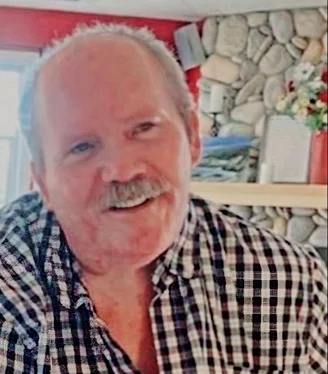California Schools Release a Blizzard of Data, and That’s Why Parents Can’t Make Sense of It
Carolyn Jones / Thursday, Sept. 5, 2024 @ 7:08 a.m. / Sacramento
Students in a classroom at Lake Marie Elementary School in Whittier on Nov. 17, 2022. Photo by Lauren Justice for CalMatters
California has a wealth of data about K-12 public schools — test scores, attendance rates, who’s headed to college and more.
Finding it is another story.
Information about the state’s 5.8 million students and their schools is spread across at least five websites, each outfitted with dozens of filters, drop-down menus and color-coded graphics. That scattered approach to data transparency prevents parents from truly understanding how their children’s schools are faring — and taking action to improve them, according to a report released today.
“I have a Ph.D. in education policy and I can barely navigate these sites,” said Morgan Polikoff, a USC professor who worked on the report. “How do we expect a typical parent to access this information and make sense of it?”
The report, published by the Center for Reinventing Public Education at Arizona State University, gave California a “D” for school data transparency, compared to other states. Researchers looked at how states present test scores in math, social studies, reading and science, as well as absenteeism and graduation rates and English learner progress.
Connecticut, Michigan and Tennessee were among the states that received A’s for their easy-to-navigate data portals. California ranked alongside Arkansas, West Virginia and Arizona, among others.
Dissecting the school data dashboard
The state’s primary data source for parents is the California School Dashboard. The Department of Education consults with data experts, including the Data Quality Campaign’s “Show Me the Data” report, when it updates the information, said Elizabeth Sanders, spokesperson for the department. The state often makes adjustments based on advice from experts and parents, she said, and is continually seeking to improve its data portals.
Sanders was unaware of the methods Polikoff and his colleagues used to critique California’s data transparency, but “Show Me the Data” also dinged California for not showing year-over-year growth data. In fact, California is one of only four states nationwide that doesn’t show any growth data at all (the others are Kansas, Kentucky and Washington, D.C.).
“We always remain open to the feedback and needs of our families, and we look forward to understanding more,” Sanders said.
The education department unveiled the California School Dashboard in 2016-17 on the heels of the state’s shift to a revised funding formula that was meant to steer more money to underprivileged students. It was meant to paint a more nuanced picture of schools’ performance, beyond just test scores. The dashboard measures academic achievement alongside chronic absenteeism, graduation rates, suspension rates, college and career readiness and English learner progress, broken down by 13 student groups.
Schools are assigned colors based on their performance, but sometimes those colors can be misleading. For example, one school might rank as orange, the second-lowest color, if it’s made progress even though its scores remain very low. Another school might rank as red, the lowest color, if it’s shown little progress but has higher scores.
“I have a Ph.D. in education policy and I can barely navigate these sites. How do we expect a typical parent to access this information and make sense of it?”
— Morgan Polikoff, professor at USC
Last year, for example, Castlemont High School In Oakland earned an orange ranking in English even though its scores were 223 points below the state standard. Just a few miles away, Skyline High rated a lower color — red — even though its scores were only 123 points below the standard.
Researchers said the dashboard is unnecessarily opaque and cumbersome. While Polikoff generally supports showing a school’s performance in relation to the state standard, he also believes parents should have easy access to the test scores in a way they can understand. In addition, the dashboard should present year-over-year trends. Currently, users must collect the numbers themselves and make their own graphs.
Other organizations have also criticized California’s dashboard. EdTrust-West, an Oakland-based education research nonprofit, has said the confusing data prevents parents at low-performing schools from advocating for their children.
“The dashboard portrays performance data using colors that in many instances suggest that schools and districts are adequately supporting their students to succeed. This is not the case in far too many California schools, and it’s especially true for students of color and multilingual learners,” said Natalie Wheatfall-Lum, EdTrust-West’s director of TK-12 policy. “Families can’t be effective partners if we don’t give them a clear picture of what’s going on.”
Student data system ‘feels like a smokescreen’
California has other portals for student data, including Data Quest, an exhaustive database of the student population; the School Accountability Report Card, which shows information about specific schools such as how many teachers are credentialed, whether textbooks are current or if the school needs repairs; and the California Assessment of Student Performance and Progress, a breakdown of Smarter Balanced standardized test scores. The California Healthy Kids Survey looks at topics like substance use, bullying and parent involvement at the state, county and district levels.
This can be frustrating for parents trying to get a snapshot of their child’s school. Knowing where to find specific details — and putting them in context — can take hours.
“It feels like a smokescreen,” said Crystal Trull, a parent of three children in San Diego Unified. “Parents don’t understand what the data means, which makes it difficult to get a sense of a particular school.”
Adding to the confusion, Trull said, the state changes assessments every few years, making it almost impossible to gauge long-term trends.
Students are the ones ultimately harmed, she said. Parents might not have all the available information when evaluating a school, and their children risk falling behind. “By the time parents realize their children don’t actually have the skills they need, it could be too late,” she said. “And that’s the real tragedy here.”
Research backs that up. In a previous study, Polikoff and his colleagues at USC found a disconnect between parent concerns and policy analysis of the state of schools, particularly post-pandemic. An avalanche of research showed steep learning declines stemming from school closures, yet many parents seemed unfazed, Polikoff said.
“Experts raise all these alarm bells but parents don’t seem that concerned or even aware there’s a crisis,” Polikoff said. “So we decided to find out why. The lack of accessible data is likely one significant reason.”
“By the time parents realize their children don’t actually have the skills they need, it could be too late. And that’s the real tragedy here.”
— Crystal Trull, parent of three children in San Diego Unified School District
Another reason is grade inflation, researchers found. If students are mostly getting A’s and B’s, parents are less inclined to pay attention to standardized test scores or alarming reports from policy experts, Polikoff said.
“Parents tend to think schools have their kids’ best interests in mind, and kids are resilient,” Polikoff said. “That can be true, but it can also mean that parents don’t always have a realistic idea of what’s actually happening.”
Better measures of student success?
At Irvine Unified, parent Jim Leung said he’d like to see the dashboard show specific test scores, not whether students are “meeting standards,” a metric that he says is not well defined. He’d also like more information about college readiness, social-emotional growth and life skills — topics that provide a far more accurate picture of how well schools are preparing students for the future, he said.
“Most students in Irvine already meet or exceed the standards, so the dashboard isn’t really helpful,” said Leung, father of a high school sophomore. “Parents want to go beyond the minimum. We want to know how well our schools are really preparing students for college and career and life in general.”
Some of that information — such as University of California and California State University admission numbers by high school — is available elsewhere online, but can be hard to locate.
“I know the information is out there,” Leung said. “But there’s so much data, and parents are busy.”
###
CalMatters.org is a nonprofit, nonpartisan media venture explaining California policies and politics.
BOOKED
Today: 7 felonies, 7 misdemeanors, 0 infractions
JUDGED
Humboldt County Superior Court Calendar: Today
CHP REPORTS
No current incidents
ELSEWHERE
County of Humboldt Meetings: Audit Committee Agenda - Regular Meeting
The Atlantic: How America Got So Sick
The Atlantic: America Isn’t Ready for What AI Will Do to Jobs
NY Times : Can Mountain Lions Survive as Humans Close In? California Is Trying to Find a Way.
California Lawmakers Want to Ban Anti-Union Meetings at Work, but Will Newsom Go Along?
Jeanne Kuang / Thursday, Sept. 5, 2024 @ 7:07 a.m. / Sacramento
Members of Teamsters, CSUEU, UAW 4123, and CFA Faculty gathered to ask for fair wages outside the CSU Chancellor’s office in Long Beach on May 23, 2023. Photo by Lauren Justice for CalMatters
On the final day of their session, California lawmakers sent Gov. Gavin Newsom a bill banning employers from forcing workers to sit through anti-union meetings — the latest attempt by Democratic politicians to support union activity amid a revived labor movement.
If Newsom signs Senate Bill 399, California would join nine other states that have recently passed laws prohibiting an employer from requiring workers to attend so-called captive audience meetings about their political or religious views.
Minnesota Gov. Tim Walz, the Democratic vice presidential candidate, signed one such law last year, and has touted it on the campaign trail.
The California bill can cover discussions of employers’ views on political candidates or legislation, but it’s largely aimed at one specific kind of required workplace meeting — when bosses discuss whether workers should unionize.
California workers, following a nationwide trend, have increasingly sought unionization in recent years. Union elections have spiked in the last three years, with nearly 17,000 workers voting at more than 300 California workplaces in 2023. So far in 2024, more than 14,000 California workers have voted in a union election, according to a CalMatters analysis of National Labor Relations Board data.
The National Labor Relations Board has generally allowed “captive audience” meetings for decades — provided employers don’t threaten workers or withhold benefits for supporting a union. But the board’s general counsel under President Joe Biden has sought to crack down on them, arguing they are often used to intimidate employees.
Business groups say the bill would be much broader, and would infringe on employers’ free speech rights. State bans in Connecticut and Minnesota have been challenged in court. Wisconsin in 2009 was one of the first states to ban such meetings; when employers filed suit the following year, arguing it conflicted with federal law, the state backed down and agreed not to enforce it.
The California Chamber of Commerce made SB 399 one of their most fiercely contested bills this year. In a legislative alert on Tuesday, the chamber said the bill would “effectively chill any discussions related to legislation, regulations, or other ‘political matters.’”
In an August letter to lawmakers opposing the bill, business groups argued they already can’t coerce workers to vote for certain candidates or to vote against unionizing, and said because the bill could fine bosses for talking to employees about political views but not other matters, it’s a violation of the First Amendment.
The bill includes exemptions for “political organizations” that employ people whose job duties require them to engage in political activity, but chamber policy advocate Ashley Hoffman said in the letter that it’s too vague.
But supporters say the bill only targets intimidation in the workplace by penalizing employers who punish workers for refusing to attend a “captive audience” meeting.
“If an employer wants to share [their] beliefs at the worksite, that’s fine, but no one should be coerced to listen,” Assemblymember Eloise Gómez Reyes, a San Bernardino Democrat, said on the Assembly floor Friday before voting for the bill.
The bill’s passage last week was a win for unions amid a number of losses this year in the Legislature, especially compared to the 2023 session.
And while the state in the past two years has increased wages for fast food workers and health care workers, and boosted worker benefits such as paid sick days, labor-backed demands to make it easier to unionize or go on strike have been a tougher sell.
“If we just keep doing legislation that makes things better for workers, that’s good, but it’s not the same power that you’re giving workers in the workplace when they’re able to strike, when they’re able to organize without intimidation,” Lorena Gonzalez, leader of the California Labor Federation, told CalMatters this week.
In 2022, Newsom was reluctant to sign a bill making it easier for farmworkers to form unions by giving them an option to signal their support without employers knowing who was voting. He only gave his approval after the United Farm Workers drummed up political pressure from fellow Democrats, including Biden. That law has now been challenged by growers in court.
Last year, he vetoed a bill to allow striking workers to collect unemployment benefits, a proposal that Hollywood writers and actors said would have helped them through the “hot labor summer” of work stoppages. Unions attempted to revive the bill this year, and it passed the Senate but failed to get enough votes to clear an Assembly committee.
The captive audience meetings bill also passed the Senate last year, and then eked out of the Assembly last week with just over the minimum 41 votes needed to pass (though a handful of Democrats added “yes” votes later). It won final approval in the Senate Saturday on a 31-9 vote.
The chamber is urging Newsom to veto the bill. The governor has not taken a position, and has until the end of September to decide.
Two other bills sent to Newsom last week seek to help laborers cut out of traditional worker protections. He has rejected versions of both before.
Newsom in 2022 vetoed an expansion of unemployment insurance to undocumented immigrants, saying that the bill didn’t identify how to pay for it. The unemployment bill passed this year would require the administration to figure that out, and then report the plan back to the Legislature.
In the past three years, Newsom has twice vetoed an expansion of workplace safety regulations to include domestic workers, such as house cleaners, nannies and caretakers, citing concerns about subjecting thousands of private homes to possible workplace safety inspections. The bill passed this year exempts workers who are privately employed by a homeowner or who are sent to private homes by publicly funded programs — such as county programs that pay caretakers for the elderly and disabled.
Instead, the bill that passed this year puts the onus on house cleaning and home care agencies to ensure their employees are safe.
###
CalMatters.org is a nonprofit, nonpartisan media venture explaining California policies and politics.
OBITUARY: Eric William Zink, 1940-2024
LoCO Staff / Thursday, Sept. 5, 2024 @ 6:56 a.m. / Obits
Eric William Zink, born October 24, 1940, passed away peacefully in his sleep on August 8, 2024.
Born in Brooklyn to Eric and Jeanette Zink, and raised in Queens, Eric loved to tell stories about growing up in New York and his many adventures as a young man. Eric headed to play basketball at Seattle University before entering the “saloon” business as he called it, working at and owning businesses in Las Vegas, South Lake Tahoe, San Francisco and finally Huntington Beach. It was here he became owner of a jazz club called Hungry Joe’s and met Susan Haynes. They fell in love, married and raised their son, Nathan.
Tiring of life in Orange County they followed their dream and moved to Humboldt County, where Eric found work as a Lime Kiln Operator at Louisiana Pacific Pulp Mill and as a painting contractor. Eric was a hardworking man with an amazing work ethic and always provided for his family.
After retiring, Eric and Susan spent many days in the garden, doing crossword puzzles, discussing art and science, playing scrabble and making each other laugh. Theirs was a true love story. After Susan’s passing in 2010 Eric met his traveling companion and partner Cynthia Ross, inheriting her family as well. They enjoyed listening to jazz, multiple trips to Europe, where the highlights included museums in France and Copenhagen, enjoying art and culture and making each other smile.
Eric was preceded in death by his loving wife Susan, with whom he is now reunited doing crossword puzzles in the universe and once again making each other laugh, his parents Eric and Jeanette Zink, his mother and father in law Eleanor and Orville “O.R.” Haynes and many beloved boxer dogs. Eric is survived by his loving son Nathan, his partner Cynthia Ross, his grandchildren, who he loved with all of his heart, Ashley, Alyssa, Cambria, Kelton, Kaius, and his two little guys, Griffin and Daegan, who were his loving, little helpers until the end. Eric is also survived by family and friends Nancy Haynes, and Sue Conley, Ron and Katie Elsea, Cubby Cherlin, Steven Rhodes, Jamie Marx and her extended family, Miko, Alisa and Safira, John E and his two children, Arlene and Billie, the Ashcom family, Taja, Sheri, and the many wonderful friends he made in the Al-Anon community, of which he was a proud member for 30 years. I apologize to anyone I may have forgotten but know my dad loved and valued you all.
I love you Dad, it was an honor and a privilege to have you as a Dad, mentor and friend. I will miss sitting and talking with you, sharing our amazing journey together, how much we loved each other and everything else I learned from you. You never missed a little league game, wrestling match, and were always the voice of love, compassion and reason, even in our darkest times. You were the most loving, affectionate man in the world and truly taught me what it means to be a father. Thank you for an amazing journey together and you will always be with me … your ride is here.
There will be a celebration of life on October 6, 2024, from 1 to 4 p.m. at the Samoa Women’s Club. In lieu of flowers make a small donation to Hospice of Humboldt, the American Cancer Society or any other charity that resonates with you.
###
The obituary above was submitted on behalf of Eric Zink’s loved ones. The Lost Coast Outpost runs obituaries of Humboldt County residents at no charge. See guidelines here.
OBITUARY: Dana Lewis Whitaker, 1959-2024
LoCO Staff / Thursday, Sept. 5, 2024 @ 6:56 a.m. / Obits
It is with a heavy heart that I write this. On August 29, 2024, Dana passed at his home in Willow Creek.
We moved into a house on the hill above the little red house that our dad and grandpa built. Dana went to grade school in Big Lagoon and later to McKinleyville High School. Dana didn’t graduate high school — he took the GED test and got out early. He was smarter than me (lol).
After school, Dana went to work for A&P truck service at the Mobil station in Orick. He worked there for quite a few years. Later, Dana went to work for Blankenship Trucking as a mechanic. I’m not sure for how many years. After that he worked for Arcata Redwood company as a millwright, where he retired.
Over the years in Orick, he surf-fished commercially, sports-fished in Redwood Creek and in the ocean. He was also an avid deer hunter.
Throughout his life in Orick and later in Willow Creek Dana made a lot of lifelong friends. I don’t think Dana ever met an enemy!
I’m gonna miss you, bro!
Dana was born in Orick on Jan. 22, 1958 to Corky &=and Nita Whitaker. He was the youngest of three boys — Darrell, Dennis and Dana.
Dana was proceeded in his death by his dad (Corky, 2010) his mother (Nita, 2012) and his oldest brother (Darrell (Butch), 2012).
Dana lives behind his next-older brother, Dennis, and his two children, Bailey and Brett; Bailey‘s two children, Rylan and Bella; Uncle Pete McAtee of Arcata; and Aunt Gloria Shuster of McKinleyville; and various cousins.
A memorial for Dana will be arranged for a later time.
###
The obituary above was submitted on behalf of Dana Whitaker’s loved ones. The Lost Coast Outpost runs obituaries of Humboldt County residents at no charge. See guidelines here.
OBITUARY: Richard ‘Rick’ Motherwell, 1949-2024
LoCO Staff / Thursday, Sept. 5, 2024 @ 6:56 a.m. / Obits
Richard “Rick” Motherwell peacefully passed away at home in Eureka on June 17, 2024,
at the age of 75.
Rick was the youngest of three children born to Ann & Thomas Motherwell in Jemison, Alabama on March 26, 1949.
He spent several years of his early childhood living in Jemison until he and his family moved to Fort Bragg, where they lived a few years before making their way to Eureka, and where he would continue to reside the rest of his life.
As a young teenager, Rick began his career as a commercial fisherman working with his stepdad, Rudy, aboard his fishing vessel. He loved the smell of the salty air, “the fog,” and developed a love and a great respect for the ocean.
He enjoyed the outdoors, spending many days hunting, fishing camping, and especially enjoyed starting and sitting around a big campfire. One of many good times to be had was when he and his beloved wife, Ruth, would pack up an ice chest of goods, and go on drives either not knowing where the roads would take them or being on a set destination. They always had so much fun enjoying each other while traveling and exploring those numerous destinations together.
Rick was very talented, and capable of doing so many things. He created several beautiful woodworking pieces, assisted in building a few houses, construction work, cooking, smoking fish and cheeses, making jerky & home made bread, as well as working on his and other friends’ boats. Being the natural-born storyteller and prankster he was, he also enjoyed entertaining his family and friends with his stories, playing his pranks and of course laughing. One of his most admiring qualities though was him taking the time to talk and show the kids big or small how to do a project that needed to be done while offering and teaching different options in which they could complete any task.
A turning point in Rick’s life was when he met his wife Ruth. Not being fools rushing in, they waited a few years before they married in August 1995. He again asked her if she would remarry him, and with the answer being yes, they renewed their vows in May 2024. They created an amazing life of being best friends, being in love with countless wonderful memories shared between themselves along with many family members and friends that will always be remembered & cherished.
Rick was preceded in death by his mother, Ann; stepdad, Rudy; his father, Thomas, and sadly so many other family members and close friends. Rick is survived by his wife, Ruth, of 38 years; brother Tom; sister Nancy; brother Rex; son Rich (wife Tamme); son Tom(wife Yvonne); son Jesse (fiance Alma); son Joey (wife Sherri); son Nate (wife Tricia); and son Bobby (wife Pamela); 11 grandsons; 12 granddaughters; three great-grandsons; several nephews/great-nephews, nieces/great-nieces, and many other extended family members, friends and loved ones.
At his request, there will be no formal services held. In lieu of flowers, please make memorial contributions in Rick’s name to Hospice of Humboldt, 3327 Timber Fall Court, Eureka, California 95503.
The family would like to extend a very special thank you to Dr. Aussenberg and his staff; Dr. Trieu and his staff; the wound care team, the lift team, and the nurses and aides of Providence-St. Joseph Hospital; the staff & care team at Providence Home Health, and the staff and care team with Hospice of Humboldt for all your kindness, help, support and the care you provided. You are an amazing group of people and are truly appreciated. Thank you.
###
The obituary above was submitted on behalf of Rick Motherwell’s loved ones. The Lost Coast Outpost runs obituaries of Humboldt County residents at no charge. See guidelines here.
County Reports Outbreak of Shigella Bacterial Infection Traced to Dinner at Eureka Elks Lodge
LoCO Staff / Wednesday, Sept. 4, 2024 @ 4:44 p.m. / Health
Shigella are bacteria (germs) that cause diarrhea. | Image via CDC.
###
Press release from the Humboldt County Department of Health and Human Services:
Humboldt County Department of Health & Human Services Public and Environmental Health officials are advising community residents who attended a dinner at the Elks Lodge in Eureka on Wednesday, Aug. 28, that they may have been exposed to Shigella. Attendees experiencing gastrointestinal (GI) issues should contact their primary care provider, as well as take steps not to spread the highly contagious infection.
Instances of Shigella infection are on the rise in the county after at least six individuals have tested positive for the illness since August.
The first cluster of three cases was identified in late-August. The individuals all appear to have been infected sometime in mid-August and a connection between the individuals could not be confirmed. Based on this information, Public Health sent out a Provider Alert to monitor for potential cases in case there was ongoing spread in the community.
Humboldt County Health Officer Dr. Candy Stockton said within the last 24 hours, staff was notified about three new confirmed cases and five suspected cases associated with the Aug. 28 event.
“We are receiving additional reports of people with GI symptoms who were also at that event and are working to follow up with each of these individuals,” Stockton said. “While it is possible that there may be other sources involved, it is highly likely that there was community spread at this event. Based on this, we are taking steps to notify anyone who was at the event of the importance of preventing additional spread if they become ill.”
Public Health staff conducting contact tracing say the two clusters do not appear to be connected.“We typically see a lot of stomach bugs and bacteria circulating during this time of year and this is a good reminder that it is important to stay home and not expose other people. If you are experiencing vomiting or diarrhea wait until symptoms have resolved for 24 to 48 hours,” Stockton said, adding that it is especially important for individuals in the health care, daycare and food services industries to follow these precautions.
Shigella germs are found in stool, and infection is spread by eating food or drinking liquids contaminated by an infected person, or when a person touches a contaminated surface or object and then touches their mouth or puts the object into their mouth. People who have contracted shigellosis typically experience a fever, abdominal cramps and diarrhea which may be bloody.
Onset of shigellosis symptoms usually occurs one to two days after exposure—but may take longer—and lasts around a week. Infected people can remain contagious up to six weeks after symptoms resolve.
Most people with shigellosis recover completely without severe complications. In rare cases Shigella may cause bloodstream infections, seizures, kidney failure or arthritis.The best way to prevent the spread of shigellosis is to wash hands:
- Before, during and after preparing food
- Before eating
- Before and after caring for someone who is sick
- After using the toilet
- After blowing your nose, coughing or sneezing
- After touching garbage
- After changing diapers or cleaning up a child who has used the toilet
- After touching an animal, animal feed or animal waste
- After handling pet food or pet treats.
People with shigellosis should:
- Stay home from school or from health care, food service or childcare jobs while sick
- Abstain from sharing food
- Abstain from swimming and hot tubs
- Abstain from having sex for at least two weeks after symptoms resolve.
- If you are experiencing symptoms, contact your primary care provider or call Public Health at 707-268-2182.
###
Follow us on
Facebook: facebook.com/HumCoDHHS
Instagram: instagram.com/HumCoDHHS
X: X.com/HumCoDHHS
New Indie Movie Featuring Humboldt County and Its Breweries to Screen in Arcata Thursday Followed by Q&A With Director and Writer/Star
Ryan Burns / Wednesday, Sept. 4, 2024 @ 3:50 p.m. / MOVIED!
###
“For When You Get Lost,” an award-winning indie film featuring Humboldt County’s majestic scenery and tasty beers, will screen Thursday evening at the Arcata Theatre Lounge, followed by a Q&A session with director Michelle Steffes and screenwriter/co-star Jennifer Sorenson.
Described by Film Threat as “sincere, subversive, and entirely unique,” the movie was inspired by a real-life road trip that took Sorenson through the Pacific Northwest by way of Avenue of the Giants, Eureka and Arcata — with stops at several local breweries.
The Outpost reached Steffes by phone earlier today, and she told us that her low-budget feature debut, which nabbed multiple awards on the festival circuit, including the Comedy Vanguard Audience Award at the 2023 Austin Film Festival, will make its non-festival theatrical premiere in Arcata Thursday evening.
The plot is based on a trip that Sorenson took years ago in an effort to make amends with her father before he died. “And on the way she had these mini-adventures,” Steffes explained.
Early in her trip, Sorenson encountered some bikers who suggested she go through Avenue of the Giants and stop in Arcata and Eureka.
“So on that trip she went to Lost Coast Brewery, and she was so charmed and taken with the area, she started feeling like life was being cinematic,” Steffes said.
Sorenson had worked at various breweries and beer festivals, getting to know a variety of people in the beer-making community, and when it came time to produce the film version of her story, the crew relied on some of those very same people.
For example, Meredith Maier, co-owner of Six Rivers Brewery in McKinleyville, has “a sassy, judgy cameo” role in the movie, as she recently noted on Facebook. She told the Outpost that a coworker volunteered her for the role after producers put out a call for someone with an expressive face.
“I have a one-word line,” Maier said via Facebook Messenger, adding a smiley-face emoji.
While Sorenson made her real-life road trip solo, for the movie version she gave herself an estranged sister to accompany her and help heal the family’s fractures. The pair makes a bit of an odd couple, with Sorenson’s character, June Stevenson, up for adventure while her sister Cami (played by Elizabeth Alderfer) just wants to get the trip over and get back to real life.
“We kind of call it ‘Sideways for beer,’” Steffes said, referring to Alexander Payne’s Oscar-winning, wine-drenched drama-comedy from 2004.
During the production crew’s time here in Humboldt they shot scenes at Six Rivers Brewery, Lost Coast Brewery and Redwood Curtain Brewing Company, along with a few non-beer-related locations. (Look for a giant redwood hug in the teaser trailer above.)
Steffes described the movie as a “very low budget” labor of love. When Sorenson first brought her the script, she loved it but voiced skepticism that all its scenes — including shots at an airport, on a boat and in multiple breweries — could be filmed on a shoestring budget.
“She [Sorenson] told me, ‘You haven’t met people in beer culture; they’ll be so supportive.’ And they were,” Steffes said. “They sometimes gave us food. We felt so supported. We absolutely could not have done it without the people in that world.”
With an all-women filmmaking team, “For When You Get Lost” also received support from the nonprofit Women In Film, and it was awarded a ReFrame Stamp for its gender-balanced production, according to industry website Celluloid Junkie.
Steffes said she thinks there were still tickets available as of Wednesday afternoon, and she’d love to have locals come “pack the house” and ask any questions they may have for her and Sorenson.
The show starts at 6 p.m. at the Arcata Theatre Lounge. Tickets can be purchased online or at the venue.
Screenshot from the trailer.







